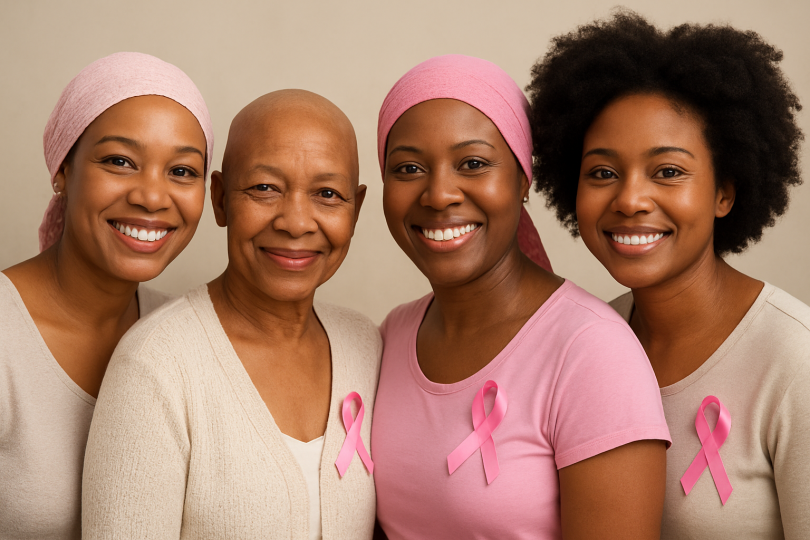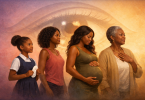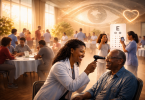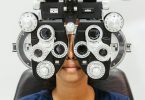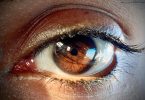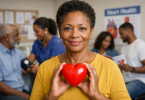Data from the National Breast Cancer Foundation shows that 1 in 8 women living in the US will be diagnosed with breast cancer during their lifetime, representing about 13% of women. In 2025 alone, ~2,800 men and ~316,950 women will be diagnosed with invasive breast cancer.
Globally, the World Health Organization has reported that more than 2.3 million women were diagnosed with breast cancer each year, with nearly 700,000 deaths attributed to globally. Thanks to advancements in medicine, survival outcomes are improving—according to the Centers for Disease Control and Prevention, about 92% of people diagnosed with breast cancer in the US are alive 5 years after diagnosis. Still, cancer remains the second leading cause of death in the US, according to the National Center for Health Statistics.
With early diagnosis and treatment in the localized stage, the same report from the CDC indicates a 5-year survival rate of 99.6%. However, the mortality rate for Black women is 42% higher in the US when compared to other races, according to Breast Cancer Prevention Partners.
For Black people, recovery extends far beyond diagnosis and treatment. After the stressful journey of the surgery, radiation, or chemotherapy sessions, Black cancer survivors will still need to undertake another trip where they navigate physical healing, emotional adjustment, and even finding themselves. Therefore, focusing on key areas during this recovery period can make each mile smoother, healthier, and even empowering.
Physical Healing and Follow-Up Care
After treatment, the body will take several weeks, months, or even years to recover. This period is accompanied by layers of processes that poke the body, mind, and soul. Surgical wounds, radiation fatigue, and side effects from chemotherapy may linger. Not to mention face lymphedema, pains, or reduced mobility in arms and shoulders reported in many women after treatment.
As a result, it is crucial to maintain regular follow-up with healthcare providers after treatment to monitor progress and identify any complications before they become severe. Also, Breast Cancer Now stated that physical therapy or guided exercise is essential after treatment, as it helps restore movement. According to the Cleveland Clinic, the following can help the physical healing process during recovery:
- Drinking plenty of fluids
- Cutting back on caffeine
- Adapting healthy sleeping habits
- Eating well
- Proper management of medication
- Practicing yoga
Emotional and Mental Health
The scars cancer leaves are not just physical. The National Library of Medicine (NLM) said that during recovery, many Black survivors have anxiety about recurrence, post-treatment fatigue, and depression—most often untreated. Another separate report from NLM suggests the following to help with recovery from emotional pains and improve mental health:
- Therapy
- Counselling
- Support group
Journaling, meditation, or speaking freely with a trusted friend or family member can help relieve many emotional burdens. For Black people who have journeyed through breast cancer and made it out alive, prioritizing mental health is not a luxury but a necessity towards total recovery.
Body Image and Identity
Treatment changes how many Black women see themselves. Breasts and hair are some of the things they will have to sacrifice during treatment. In the Black community, a woman’s hair and her breasts most often define her beauty, yet many women lose one or both of them, thereby impacting their body image and confidence.
The way to recovery is to redefine beauty and identity beyond physical appearance. For women who have had a mastectomy, reconstruction or prosthetics can help rebuild their confidence and self-esteem, yet Yale Medicine reports that 35% choose to go flat. Remember, it’s your body, it’s your choice. Go for whatsoever makes you confident.
It will help if Black women focus on what they have gained (life) rather than what they have lost (breast, hair, etc). Wanda Sykes, an American stand-up comedian, writer, and actress, battled with a form of Stage 0 breast known as ductal carcinoma in situ (DCIS). Despite all she went through, she said, “That’s why I talk about the breast cancer: because I want women – and everyone – to stay on top of things and get checked. I know how scary it can be. When I dealt with it, I was like, ‘Oh my God.’ And I have so many other friends who have gone through it or have suffered a loss.”
Beyond everything scars, every pain, and every loss, let’s celebrate the gift of life.
Community and Support System
The American Cancer Society reports that Blacks have the highest death rate for breast cancer. This call requires serious community intervention and support. Without healing, our community will keep on losing valuable members. As we observe World Breast Cancer Month, we must shine a light on members of our community going through their healing process.
Healing is not supposed to take place alone. Family, friends, faith groups, or cancer survivor networks within our community must come together and provide encouragement and strength. We need to debunk the myths surrounding cancer and remind breast cancer survivors that they are not alone, even though they may feel alone. Church-based community support will go a long way. They can also reach out to the local American Cancer Society for local support groups and find strength in wellness programs.
At Elevate Black Health, we believe that shared laughter or a listening ear can go a long way. Now is the time to remind them that recovery is not about returning to the past but about building a new and empowered self after breast cancer.
Further Reading:
- Breast Cancer Facts & Stats. https://www.nationalbreastcancer.org/breast-cancer-facts/
- Breast cancer. https://www.who.int/news-room/fact-sheets/detail/breast-cancer
- U.S. Cancer Statistics Female Breast Cancer Stat Bite. https://www.cdc.gov/united-states-cancer-statistics/publications/breast-cancer-stat-bite.html
- Mortality in the United States, 2023. https://www.cdc.gov/nchs/products/databriefs/db521.htm
- African American Women and Breast Cancer. https://www.bcpp.org/resource/african-american-women-and-breast-cancer/
- Physical Activity, Exercise, and Primary Breast Cancer. https://breastcancernow.org/about-breast-cancer/life-after-treatment/your-body-after-breast-cancer-treatment/physical-activity-exercise-and-primary-breast-cancer
- Cancer Fatigue. https://my.clevelandclinic.org/health/diseases/5230-cancer-fatigue
- Anxiety and Depression in Cancer Survivors. https://pmc.ncbi.nlm.nih.gov/articles/PMC5915316/
- A Breast Cancer Decision: What Kind of Reconstruction is Right for You? https://www.yalemedicine.org/news/breast-reconstruction-after-cancer
- Wanda Sykes and Breast Cancer: How She Went Against, How She Survived, and More. https://oncodaily.com/stories/celebrities/wanda-sykes-cancer
- Cancer Facts and Figures for African American/Black People. https://www.cancer.org/research/cancer-facts-statistics/cancer-facts-figures-for-african-americans.html
- 15 Cancer Myths—Don’t Believe the Hype! https://www.elevateblackhealth.com/15-cancer-myths-dont-believe-the-hype/


